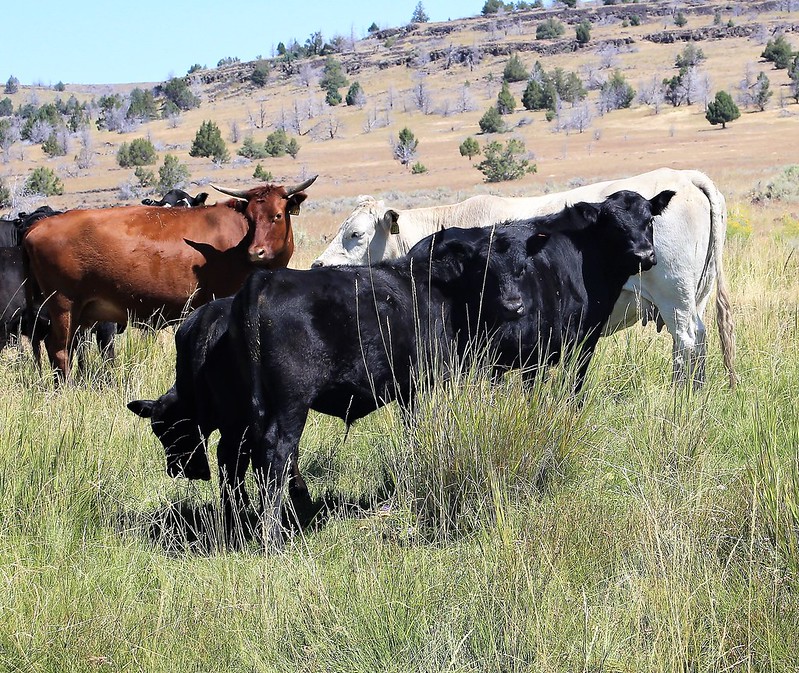
Cattle grazing on a public land allotment administered by the BLM's Eagle Lake Field Office in northeast California.Credit: Jeff Fontana, BLM
June 9, 2024 - Washington, D.C. — Last week, U.S. Senators Ron Wyden and John Barrasso (R-Wyo.) said they have introduced bipartisan legislation that would support ranchers who rely upon federal lands in Oregon and nationwide to graze their livestock.
"After embracing the Bureau of Land Management pilot program, ranchers in eastern Oregon worked closely with me to include updated operational flexibility in my community-crafted Malheur Community Empowerment for the Owyhee Act to bring certainty, conservation and economic opportunity to the forefront of Malheur County’s future,” Wyden said. “Today I’m pleased to work with Senator Barrasso to build on the work of Oregon ranchers to give the rest of the West the tools to adapt in real time to the changing conditions and seasonal variations in weather brought on by the climate crisis as they manage grazing on rangelands. These authorities will recognize the ranchers who choose to use them as active participants in improving the ecological health of our public lands.”
The Operational Flexibility Grazing Management Program Act would improve the management of grazing on federal lands by allowing livestock operators more flexibility to adapt and respond to emergencies, such as drought or wildfires.
“Grazing is an integral part of keeping Wyoming’s rangelands healthy. Ranchers need more flexibility to adapt and respond to on-the-ground threats like drought and wildfires. This will both support our ranching communities and encourage better management of our federal lands. Our bill gives ranchers the tools they need to best manage the grazing activities of their livestock. I’m pleased to be working with Senator Wyden to advance this critical reform,” said Barrasso.
"The Federal Government owns over 52% of the land mass in Oregon, much of this land is open space used for livestock grazing and recreation. The flexibility given in this Act will put the management decisions of these lands in the hands of local range scientists and permittees that lease them. Oregon public lands ranchers are committed to environmental stewardship through science-based management. Public lands ranchers sequester carbon, protect valuable wildlife habitat and reduce the incidence of wildfire by the removal of fine fuels on the landscape. Our public lands ranchers are critical in the economic viability of Oregon's rural economy. This Act is a step in the right direction in responsible management of Federally owned lands in Oregon and throughout the Western United states," said Matt McElligott, President of the Oregon Cattlemen’s Association.
The Operational Flexibility Grazing Management Program Act would do the following:
- Expand a national grazing program at the Bureau of Land Management that will allow for approved grazing permittees to have more flexibility in how they manage the federal rangelands they utilize.
- Require the BLM to develop and authorize flexible grazing use alternatives at the request of grazing permittee or lessee, in consultation with the affected federal and state agencies, applicable Tribes, and other affected parties within the allotment.
- Provide for adjustable pasture rotation dates up to 14 days before and after the specified timeframe to respond to changes in weather, forage production, fire, drought, market conditions, or other temporary conditions.
- Require BLM to establish cooperative monitoring plans and rangeland health objectives to monitor and evaluate the impact of the program in coordination with the permittees.
The full text of the bill is here.
Source: Senator Ron Wyden








